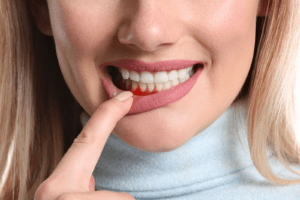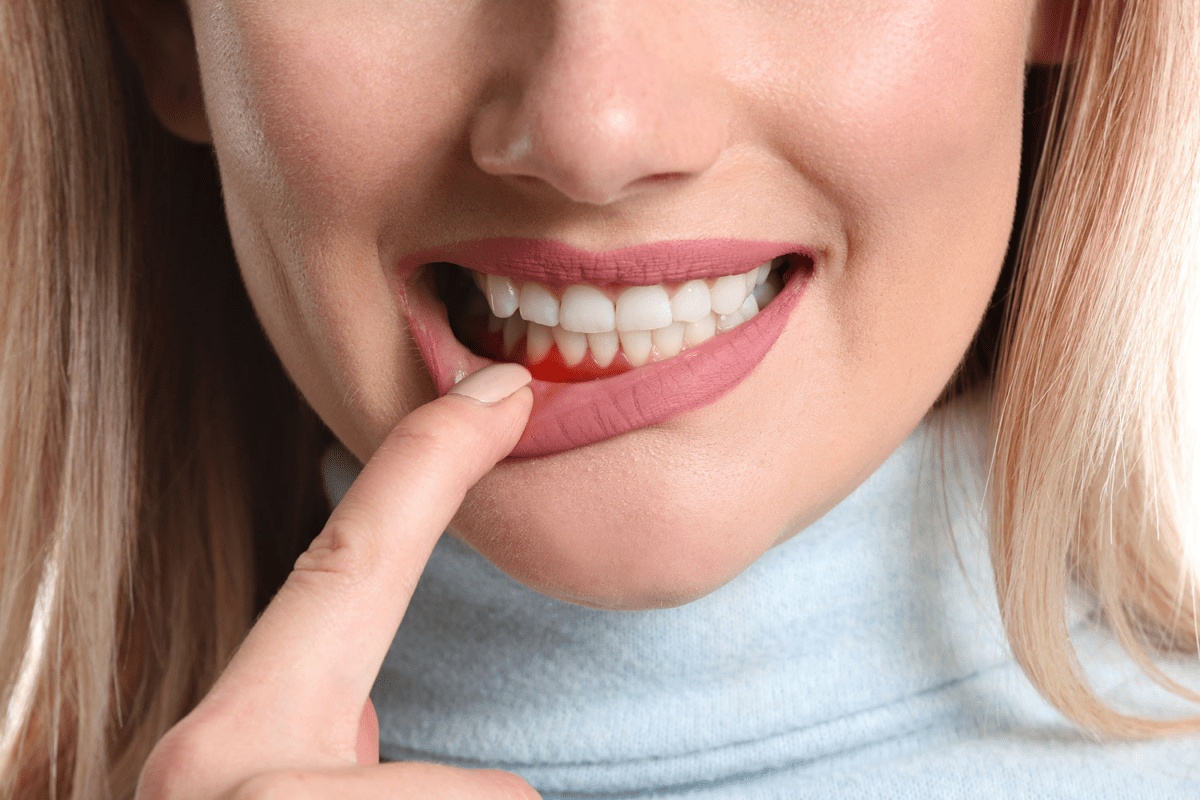Previously, we’ve covered how periodontal disease impacts men. Ladies, now it’s your turn. Read on to learn how periodontal disease affects women, particularly during puberty, menstruation, pregnancy, and menopause/post-menopause.
 Periodontal disease is an inflammatory condition that affects tooth-supporting structures. Puberty exacerbates the inflammatory state by increasing blood circulation to the gums due to the production of a higher level of hormones like estrogen and progesterone. This elevated blood flow may heighten the gum’s sensitivity, and the gums may feel more tender, turn red, and swell. The increased blood flow may also cause a more intense reaction to irritants such as food particles.
Periodontal disease is an inflammatory condition that affects tooth-supporting structures. Puberty exacerbates the inflammatory state by increasing blood circulation to the gums due to the production of a higher level of hormones like estrogen and progesterone. This elevated blood flow may heighten the gum’s sensitivity, and the gums may feel more tender, turn red, and swell. The increased blood flow may also cause a more intense reaction to irritants such as food particles.
Similarly, the increase in hormones that occurs during the menstrual cycle can cause some women to experience what is called menstruation gingivitis. This condition causes additional blood flow to the gums, which can exacerbate gum sensitivity and susceptibility to irritation. Women with this condition may experience red and swollen gums, bleeding gums, and sores on the inside of the cheek. Menstruation gingivitis usually starts a day or two before a woman’s period and clears up right as her period begins.
Hormonal changes during pregnancy may make women more susceptible to gum disease as well. Pregnant women may notice changes to their gum tissue, including swelling, heightened sensitivity, or inflammation.This is because hormonal alterations experienced during a pregnancy prompts the body to circulate more blood throughout the body, including the gums, and this increased blood can cause swollen and tender gum tissue.
Finally, menopausal or postmenopausal women may also experience changes in their periodontal health and become more susceptible to gum disease. Typically, this occurs due to declining estrogen levels that not only contribute to weaker bones and loss of bone density throughout the body, but also to bone loss in the jawbone area. This, in turn, places some menopausal women at an increased risk for tooth loss.
To combat the increased risk of periodontal disease during the various stages of their life, women should remain vigilant for the warning signs of periodontal disease: bleeding gums, red, puffy, swollen, and/or tender gums, loose teeth, an unusual bite, or a persistent bad taste. Additionally, good oral hygiene should always be observed, along with regular visits with your oral health care professional.
Have questions? Give us a call at 919-518-8222!

For more information on this topic, listen to the Gum Guru Podcast by clicking the link below:
